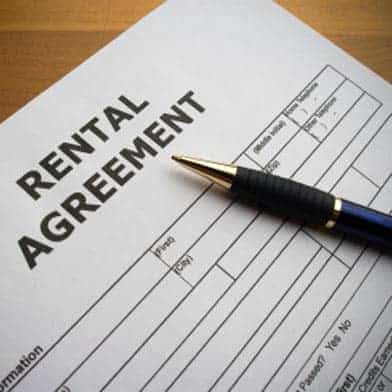
If Our Roommate Moves Out, Can Our Landlord Jack Up Our Rent?
If Our Roommate Moves Out, Can Our Landlord Jack Up Our Rent?
My home is a duplex with my landlord living in the apartment above. It was built before 1979.
The original tenants moved in two and a half years ago. We will call them Dan, Josh and Ted. Ted moved out after the first year and my boyfriend moved in and signed a year lease with Dan and Josh.
After a year Dan moved out and I moved in but I did not sign a lease, my boyfriend and Josh signed a six month lease.
The six month lease is nearly up and my boyfriend and I would like to renew with a year lease without our third roommate Josh. My landlord wants to raise our rent claiming “the original tenant is moving out.”
My boyfriend has now been on two leases (one for a year and the other for 6 months) in this apartment, is he not considered an original tenant at this point? Is my landlord allowed to raise the rent any amount they wish? We have always paid on time and have never complained nor been complained about in this apartment and I am worried we will be taken advantage of if we don’t familiarize ourselves with the SF laws.
It’s not completely clear to me if the leases your boyfriend signed were subleases or leases also signed by the landlord. I’m going to assume that when your boyfriend originally moved in, he and Dan and Josh all signed a new lease with the landlord. I’m also assuming that your boyfriend and Josh signed the six-month lease with the landlord.
As you are probably aware, if your boyfriend only signed a sublease with the original tenants, your landlord may be able to increase the rent.
This is why a lawyer may ask questions to which the answers seem obvious. When you stated that your boyfriend “moved in and signed a year lease with Dan and Josh,” I thought he may have signed a sublease. The rest of the facts, however, indicate to me that the leases were negotiated with the landlord. Of course, the distinction is crucial to determining if your boyfriend is a co-occupant or a subsequent occupant.
Given my assumption, your boyfriend is clearly a “co-occupant” for purposes of the Rent Ordinance Rules & Regulations §6.14(a)(3): “‘Co-occupant’ for purposes of this Section 6.14 only, is a subsequent occupant who has a rental agreement directly with the owner.”
Rules & Regulations §6.14(c), the section applicable to your boyfriend, states: “When all original occupant(s) no longer permanently reside in a rental unit, and the last of the original occupants vacated on or after April 25, 2000, the landlord may establish a new base rent of any subsequent occupant(s) who is not a co-occupant and who commenced occupancy of the unit on or after January 1, 1996 without regard to the limitations set forth in Section 37.3(a) of the Rent Ordinance…”
Note that your boyfriend is not an original occupant within the meaning of §6.14 (a)(1): “Original occupant(s)” means one or more individuals who took possession of a unit with the express consent of the landlord at the time that the base rent for the unit was first established with respect to the vacant unit.
That brings up another issue. If the landlord increased the rent more than the Rent Ordinance annual allowable increase in one or both of the subsequent leases, you may be able to petition the Rent Board for an illegal rent increase.
Between you and me, when I read your question I thought, “WTF, the guy’s named on the lease. This landlord is out of his frickin’ mind!” But when I reread §6.14, which as usual, has the effect of a combination of Seconal and Wild Turkey, I understood your landlord’s confusion. Your boyfriend is not an original tenant/occupant, but the landlord still cannot increase the rent.
Rules & Regs §6.14 issues are always complex and one should always discuss them with someone trained in the nuance of the Rent Ordinance. Where can you find such a person? At the San Francisco Tenants Union! You can go over the facts with a counselor there and fashion a letter stating the applicable law, informing the landlord that he can’t increase the rent over the allowable limit.

 The Costa Hawkins Rent Housing Act, a bi-partisan law enacted in 1995 by the band of pandering griftocrats we call our state legislators, that eviscerated local rent control.
The Costa Hawkins Rent Housing Act, a bi-partisan law enacted in 1995 by the band of pandering griftocrats we call our state legislators, that eviscerated local rent control.






 This is a dance you probably shouldn't try to do by yourself. Almost all tenants need a lawyer to lead. You likely have a better chance buying a house than you do prevailing in an unlawful detainer by defending yourself.
This is a dance you probably shouldn't try to do by yourself. Almost all tenants need a lawyer to lead. You likely have a better chance buying a house than you do prevailing in an unlawful detainer by defending yourself.